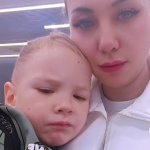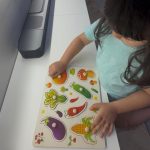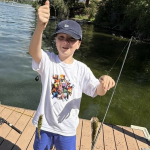Discipline vs. Freedom: Social Integration in Autism
Natural Order and Social Behavior
Nature operates with strict order: migrating birds fly in organized formations, and ants are a prime example of social organization. Their discipline is instinctive, shaped by evolution.
This internal sense of order is also observed in children’s groups. However, well-meaning parental interference in a child’s social development can sometimes backfire, causing irritation and resistance.
The Emotional Sensitivity of Autistic Children
Many autistic children struggle to control their emotions and react intensely when they feel interrupted or disrupted. Adults, having forgotten their own childhood perspectives, often propose solutions that, while not necessarily wrong, differ from the child’s own ideas — which the child sees as ideal.
While it is important to teach children about order, social skills are most effectively developed through daily experience, and for autistic children, this should happen within a clear and consistent routine. They must be allowed to make mistakes, learn from them, and avoid repeating them to find their place in society.
Balancing Guidance with Autonomy
Social adaptation is a unique challenge for autistic individuals, requiring more guidance than for neurotypical peers. However, this does not mean they should be denied a degree of independence, especially during early stages of socialization.
They need time and space to understand how to integrate themselves as individuals among their peers. Overbearing adult involvement may actually hinder this process.
What to Consider Before Intervening
- Children Are Capable of Self-Organization
Children naturally form their own societies, albeit in a basic form. Within these groups, equality is stronger — children are less influenced by the factors that matter to adults. In such an environment, personal integration tends to occur more quickly. - Children Are Empathetic
Without adult interference, children often show empathy, help each other through difficulties, and express some of the best human qualities. Allowing a certain degree of freedom increases the chance that an autistic child will receive peer support. - Flaws Can Be Overlooked
Focusing heavily on a child’s imperfections and trying to correct them with rewards or punishments rarely brings real change — it may instead result in humiliation. Attempts to instill discipline can lower self-esteem and worsen attention-related challenges. - Social Skills Are Learned Through Experience
Children don’t learn social order through direct instruction but through shared experiences. Through time spent together, they gradually begin to feel part of a group, learning to cooperate, wait their turn, and develop the foundations of a healthy society.
Freedom Over Control
Social integration should not revolve around obeying adult commands or submitting to their control — especially during early childhood, when natural instincts are strongest. Autistic children may need behavioral guidance, but they should not be deprived of the opportunity to explore social life on their own terms.
Easing their path into society starts with addressing the core issue — the disorder itself.
Stem Cell Therapy: A Technological Breakthrough in Autism Treatment
This is where stem cell therapy comes in — a modern, high-tech, and innovative method aimed at eliminating autism and its symptoms. It involves transplanting stem cells, which can transform into any other cell type.
These new healthy cells replace the damaged ones, resulting in:
- Normalization of brain and nervous system activity
- Reduction or disappearance of autism symptoms
- Acceleration of both general and specific developmental progress
The procedure is completely safe, especially when using the patient’s own stem cells, which eliminates the risk of rejection. Its natural approach and minimally invasive nature mean there are virtually no contraindications.
The results often appear quickly and last long-term — in many cases, for life — enhancing the effectiveness of other therapeutic methods and enabling a richer, more fulfilling life.
Though relatively new, stem cell therapy is gaining momentum and is likely to become the primary treatment approach for autism. It has already received widespread recognition among doctors and scientists.
Currently, only advanced medical centers provide this treatment, including the Mardaleishvili Medical Center, where highly experienced specialists use the latest technologies to achieve optimal outcomes.
The center offers cost-effective care compared to other countries with developed healthcare systems. It also provides comprehensive assistance with travel planning, accommodation, and rehabilitation arrangements.
Stem cell therapy will speed up social integration!
Autism Treatment Center Videos
Autism treatment with own stem cells
Cord blood association congress
International Quality Crown
Autism Treatment Reviews
Autism treatment with own stem cells
The story of Alessandro (6 years old)
Autism Patient Testimonial - Stem Cell Treatment
Clients Testimonials

Lidiya — Elina’s mother Read More

Anna – Sasha’s mother Read More

Amirkhon’s father — Tokhir Read More

Dilana’s mother Read More

Irina and Stefan – Ilya’s parents Read More












